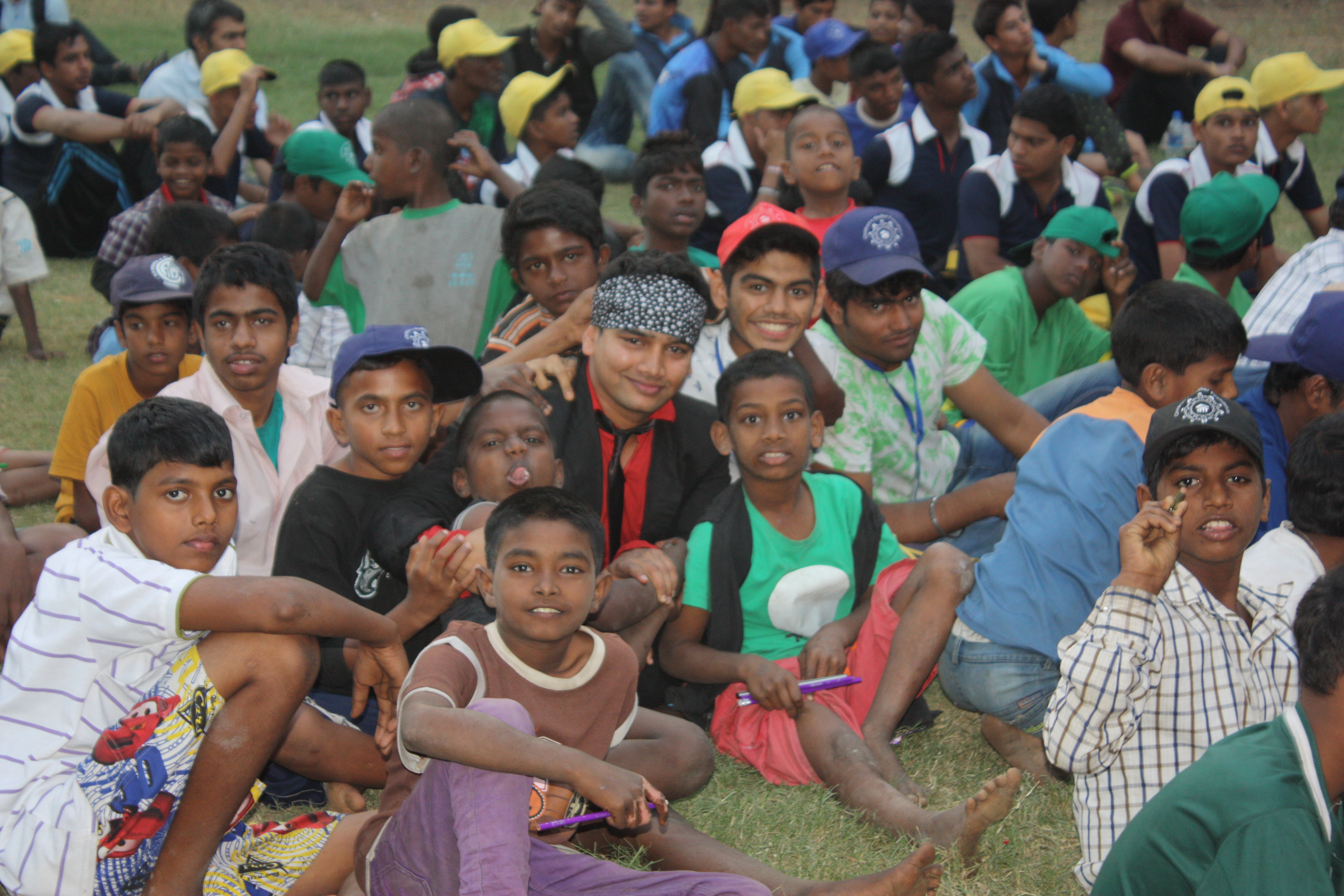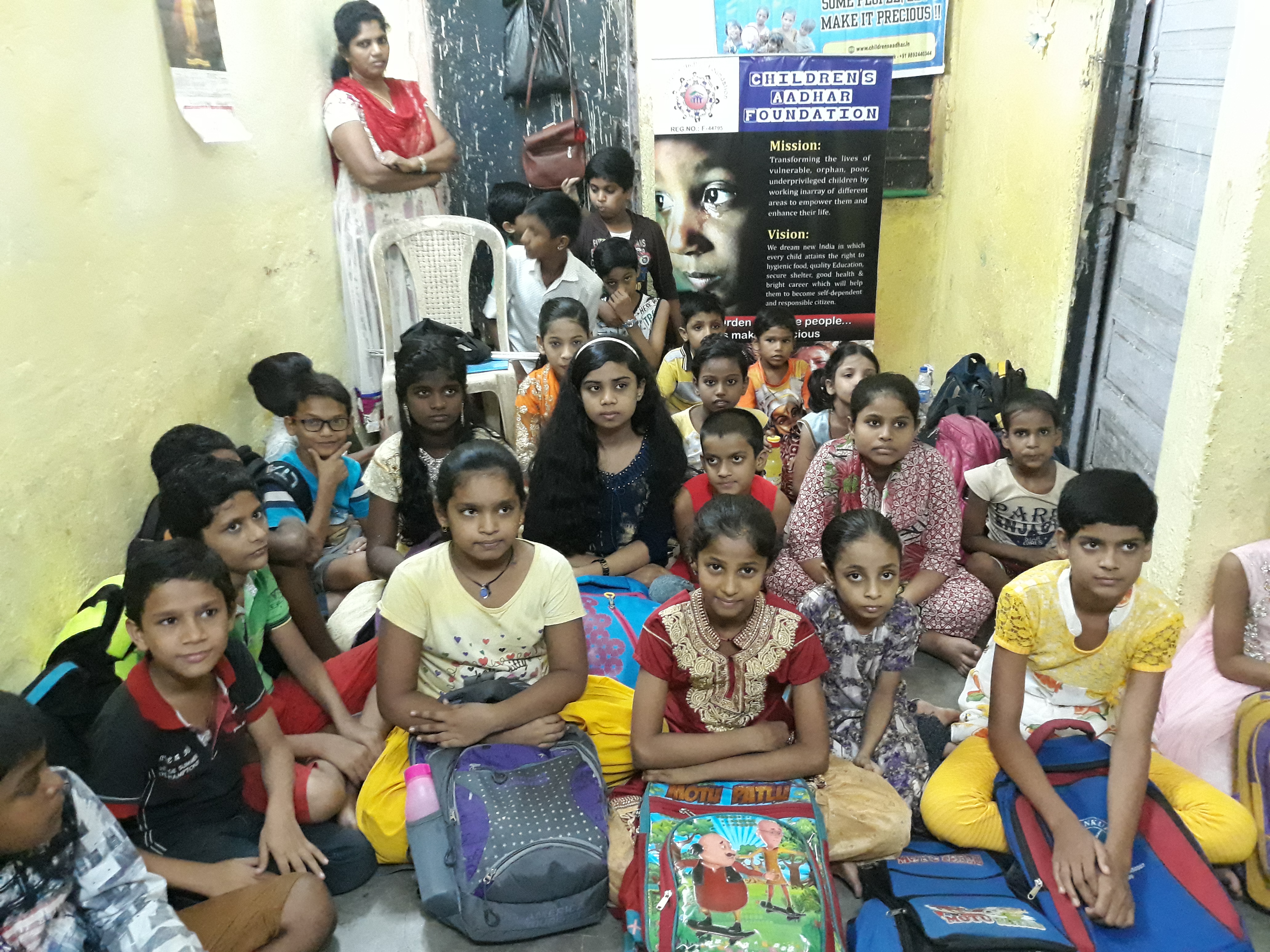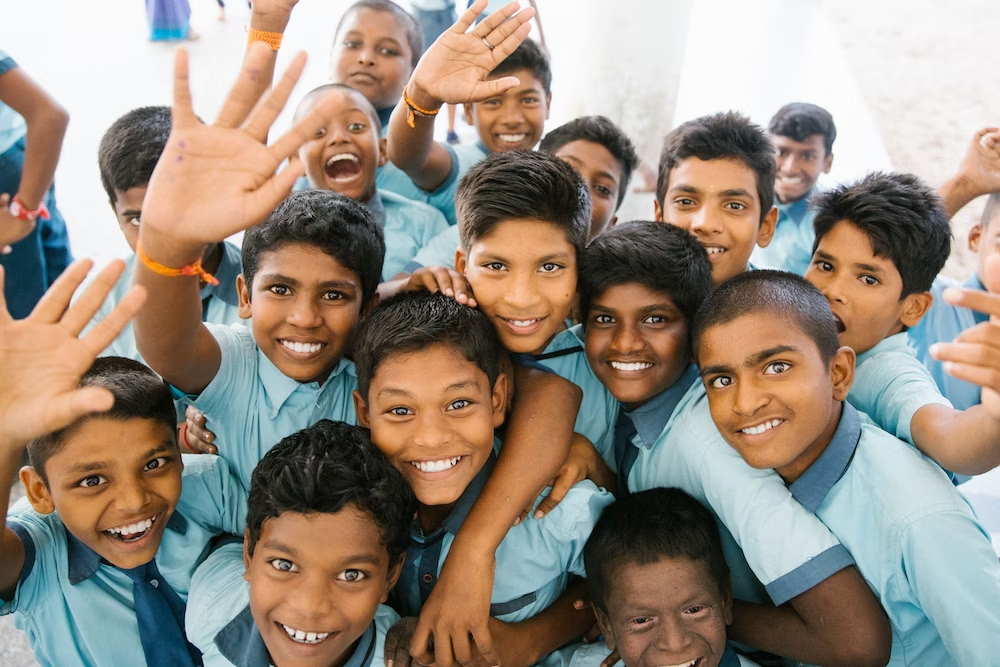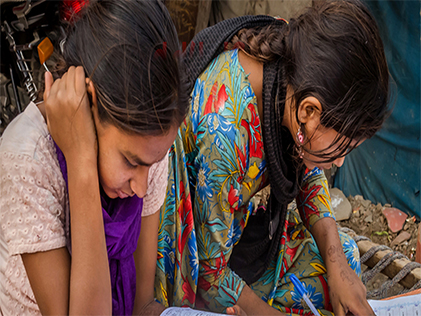Institutions follow Government rules which secure the life of a orphan child only up to the age of 18
years. The youth are asked to leave institutions after the age of 18 years, which may result in
discontinuing education, lack of vocational skills, incomplete information and lack of exposure to the
outside world etc. Often, youth leaving institutions end up as unorganized sector workers with low wages and
low negotiating power. Lack of effective rehabilitation policies like provision of basic documents like
ration card, caste certificate and domicile certificate prevents institutionalized youth from getting access
to developmental schemes and programs. The end result is that youth, especially orphan youth leaving
institutions do not have an identity of their own, neither as a human person nor as a citizen.
CHILDRENS AADHAR FOUNDATION believes that a holistic rehabilitation program needs to be
designed for youth leaving the institutions and wanting to live an independent outside the institutions. The
challenge is especially of those youth who are orphans and who have no support system. The youth have to
compete in the global market. Skills and information required to survive in the global market, such as
effective communication skills, knowledge of English language and self-confidence, are lacking in the
institutionalized youth and therefore they are further marginalized. CHILDRENS AADHAR FOUNDATION therefore
proposes a total socio-economic rehabilitation program for youth in institutions and support programs for
youth who have left institutions.
India, one of the largest democracies in the World has a Population of over 1.2 billion as of
today. Most of the people in India are living below the poverty line and are facing many problems, viz.,
lack of food, shelter, health care, education and un-employment and thus the people live in utter poverty.
Poverty has always been recognized as the major cause of death and disability. Poverty brings on lack of
safe Drinking Water, inadequate food, poor health care and poor education. All those, who will have effect
on health.
The poverty situations in Indian context, reflects in the State of Maharashtra. The families
in slums and rural areas are normally large and often face the problems and the earning members of the
family unable to cope up with the situations. Sometimes they may not get work to earn. Eventually they
migrate to other places in search of livelihood or starve to meet death or disease. The struggle of the poor
starts in the womb. The child in the womb suffers from the consequences of malnutrition in the mother.
The families that are living in slum areas of Mumbai are daily wages labourers. They are
living in utter poverty. They are unable to fetch their square meal a day. Some of the parents admit their
children in the private English medium schools, But they can't afford to continue their children become they
are not able to pay the fees in the school. That's reason the children are being dropped from the school.
Presently we wish start up a training center where we wish to teach such females the art of
sewing. We wish to train them on the basics of sewing by which they will be able to sew clothes or at least
learn the art of mending torn clothes.
We wish to provide them training which is of basic level thatwill make them learn and
understand the use of automatic sewing machines, handling of thesemachines, maintenance and upkeeping.
We wish to teach them techniques that will help them learnthe basics of sewing saree falls,
biding, blouse stitching, dress stitching, mending torn clothes such asshirts, trousers, jeans, T-shirts and
a lot of other aspect which includes but is not limited toembroidery, art and craft, curtains etc.
We will train them on parts of the machine, maintenance of the machine, proper handling of
the machine and various art and techniques of sewing.
THE NEED
Poverty has always been recognized as the major cause of disease, death, and disability. Now
the World Health Organization (WHO) came out with the statement the Poverty is the 'ruthless killer'. Large
families in rural areas often face these problems and the earning members of the family unable to cope-up
with the situations and survival becomes difficult. The relief often comes in the form of death leaving the
children as orphans and destitute. These children starve without shelter, food and clothing and roam along
the streets.
THE GLOBAL GOALS FOR SUSTAINABLE DEVELOPMENT
One of the important The Global Goal is by 2025, ensure that all girls and boys have access
to quality early childhood development, care and preprimary education so that they are ready for primary
education. The burden lives in the citizens who can afford to support children who are in desperate need and
helping the children to pursue their education.
TARGET GROUP OF THE PROJECT:
One of the important The Global Goal is by 2025, ensure that all girls and boys have access
to quality early childhood development, care and preprimary education so that they are ready for primary
education. The burden lives in the citizens who can afford to support children who are in desperate need and
helping the children to pursue their education.
PROPOSED PROJECT AREA:
The project is planned to undertake at Mankhurd, Mumbai a conductive site for the proposed
project. The place has all the amenities where the children will feel at home. The proposed site is also
calm and serene where the children will grow up and nurture their talents in a healthy ambiance. In
Mankhurd, where the proposed project will be initiated has building with dormitories, dining hall, kitchen,
toilets. The area can be beautified and other art structure which will make the place a real home for the
children. As the project aims for the holistic development of children it will be an ideal place.
PROJECT GOALS AND OBJECTIVES:
This project aims to address their shelter, food, education, health development.
- To provide an opportunity for 25 orphans, semi-orphans and poor children to live in congenial
atmosphere with parental love to pursue their education.
- To provide food, shelter, education and clothing for 25 orphans, semi-orphans and destitute children
in Home in Mumbai, Maharashtra, India.
- To provide medical care for 25 children are living in the Home.





